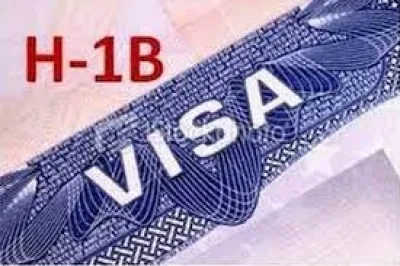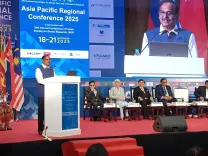Are Meta and Amazon Urging H-1B Employees to Return to the US Before $100,000 Visa Fee Deadline?

Synopsis
Key Takeaways
- Meta and Amazon advise employees to return to the US before the $100,000 fee rule.
- Deadline for returning is September 21.
- Employees abroad should consider returning within 24 hours.
- Tech sector is heavily reliant on H-1B program for skilled workers.
- The fee increase has drawn criticism from immigration experts.
New Delhi, Sep 20 (NationPress) Major tech players Meta and Amazon have issued directives to employees on H-1B and H-4 visas, advising them to avoid international travel and to return to the United States promptly if they are currently outside the country. This guidance comes as a new $100,000 visa fee rule is set to take effect on September 21.
Both companies, alongside immigration experts, caution that skilled foreign workers and their families may find themselves stranded abroad if they do not return before the new regulation is implemented. The executive order signed by US President Donald Trump on Friday imposes a hefty fee on H-1B visa applications and associated petitions.
According to reports, Amazon has been proactive in urging its US employees to remain within the country, dispatching internal communications until further details are provided. The company has also recommended that employees currently working overseas should come back by midnight Saturday.
Similarly, Meta has conveyed that H-1B and H-4 visa holders should stay in the US for at least two weeks and has encouraged those abroad to consider returning within a 24-hour timeframe.
The abrupt increase in fees has sent shockwaves through the tech industry, which heavily relies on the H-1B program to recruit skilled professionals, particularly from India. In addition, Microsoft has also shared internal guidelines advising employees to avoid travel for the foreseeable future.
This decision has sparked criticism from immigration advocates, who assert that it effectively restricts foreign professionals unless employers are willing to pay exorbitant fees.
Under the H-1B visa program, US employers can hire foreign nationals in specialty occupations, particularly in technology and engineering fields.
Trump's announcement has raised alarm bells across Silicon Valley and beyond, marking the steepest fee increase in the program's history.
With the deadline looming, both companies and employees are scrambling to avert disruptions that could leave thousands cut off from their jobs and families.









